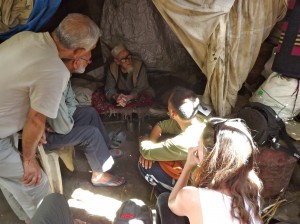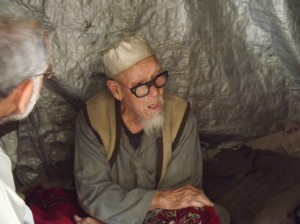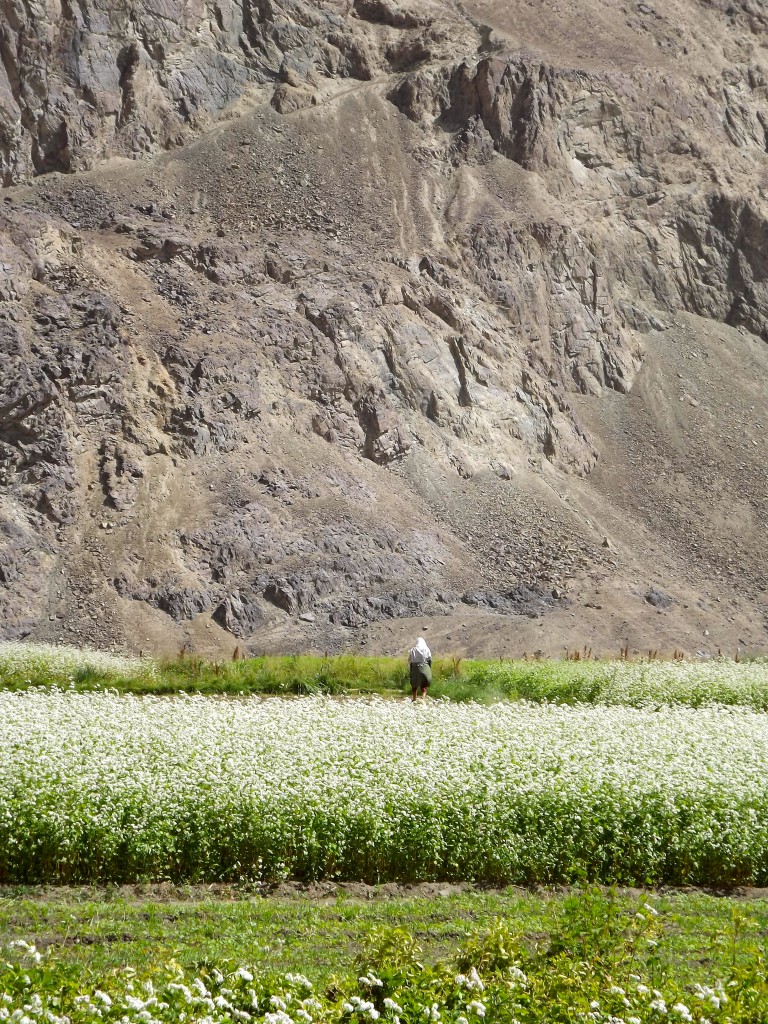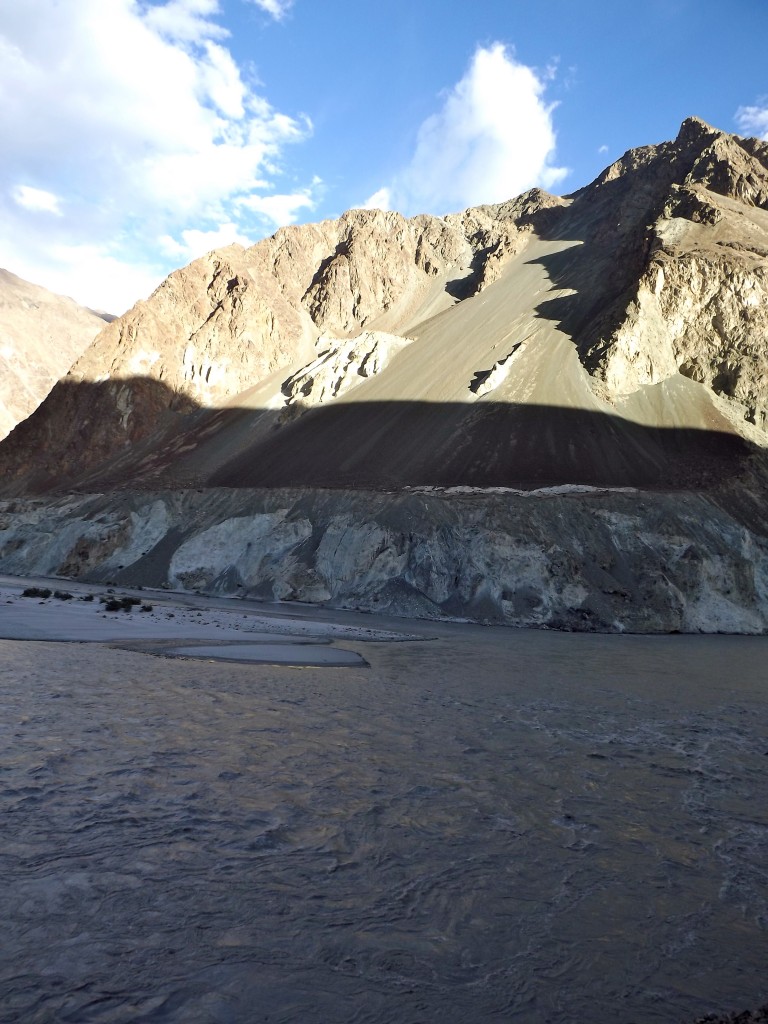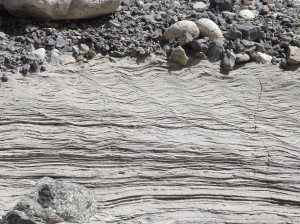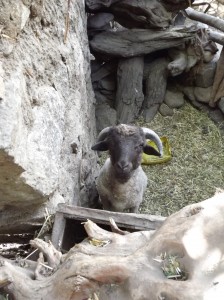Ruzi Mohammed thinks that he is around 110 years old. He keeps track of the years using the changing seasons, and there is no missing them in Turtuk, where winters reach -20˚C, and summers are warm and pleasant. Too high for mosquitos, and low enough for a good harvest, Turtuk is a paradise in the summer. The winter is survived by shutting down, almost hibernating, and surviving on wheat mixed with water. It is no wonder that this Himalayan town has been the center of a drawn out conflict between India, Pakistan and China over Ruzi’s lifetime. The town now lies at the Pakistani border, on the Indian side, and has recently been opened up to foreign visitors. Ruzi doesn’t meet many of them though because he mostly stays in bed, having recently lost the ability to walk, and he only speaks Balti, so it takes two translators for him to talk with us (Balti – Hindi, and Hindi – English).
Ruzi had two sons and two daughters. He lost his sons at a young age to small pox, but his two daughters survived and he now lives surrounded by grandchildren and great-grandchildren.
In a town such as Turtuk where until recently there was no outside access, many people are illiterate (including Ruzi), and there are no cables connecting them to the rest of the world, the only records are held within living memories. Understanding the historical pattern of hazards in a region is essential for assessment of risk today, and it is important to include evidence from all sources – geology, geomorphology, modern satellite measurements, and historical records. We spoke to Ruzi about his memories of 110 years in this valley.
“The winter snow cover used to be thicker. Before the war, in 1971, it was always more than two feet deep.” The climate has changed here over his lifetime, but the winters are still harsh.
Ruzi recalls a large flood when he was 8 and a half years old. His family sensed the water coming and managed to flee to higher ground in time, but their village was washed away. The mosque survived – it was well built and on higher ground. Ruzi has donated the farmland behind his house for a new, second mosque to be built.
It is likely that the flood Ruzi remembers was caused by blocking of the river at a higher point by a glacier or landslide. If a lakes builds up behind a dam and then the dam suddenly destabilizes, the lake is sent cascading downstream. We saw lake sediments on the margins of the river – evidence that this process has occurred in the past. As we drove along the silk road we observed many debris flows that could potentially block the river and result in the formation of another unstable lake.
Ruzi says the secret to his long life is eating only local fruit and veg, especially the apricots, and the occasional piece of lamb. And of course, God’s will.

